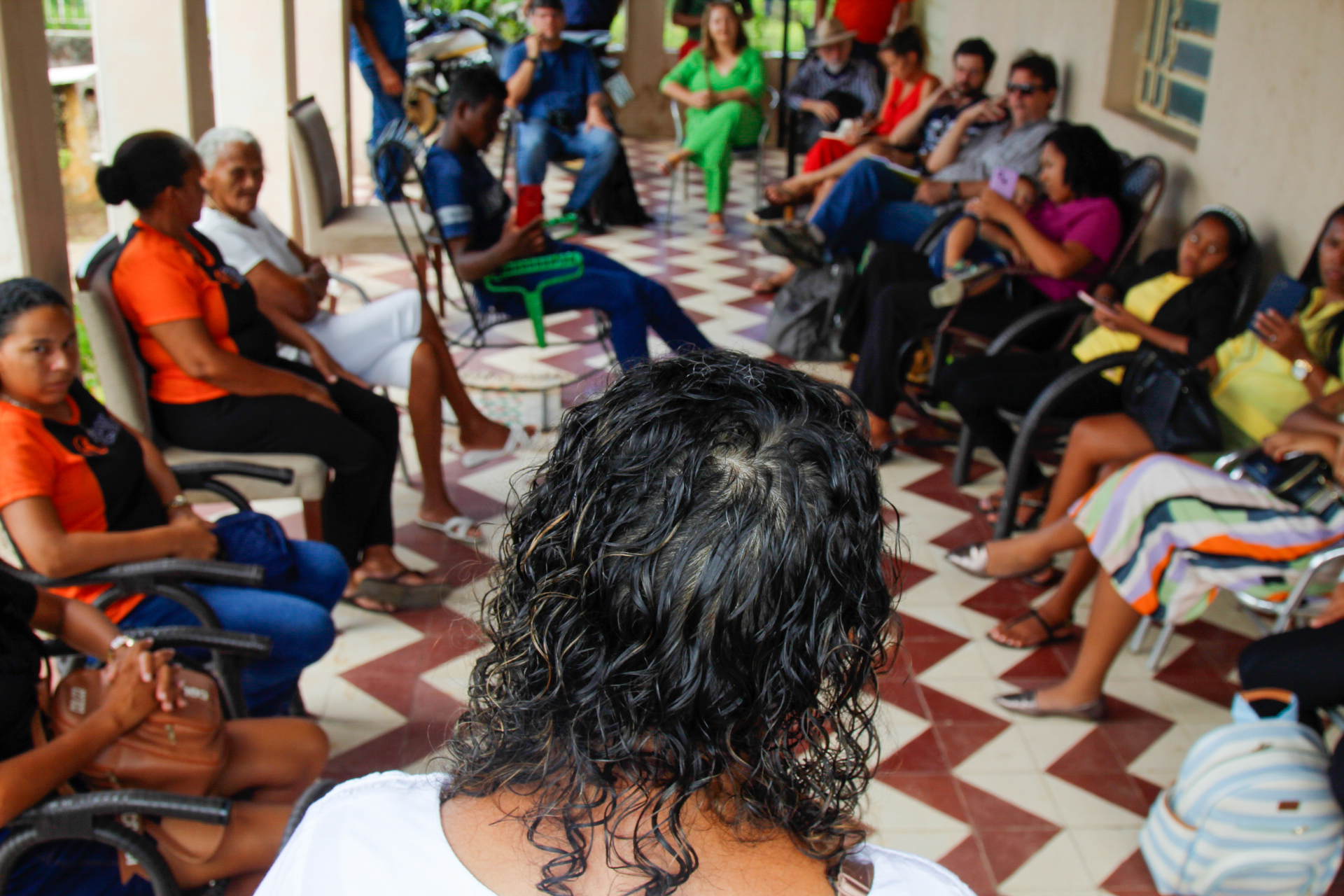Northeastern communities fight for a just energy transition; watch the documentary
Exchange between quilombola communities from Paraíba and Piauí enables discussions on pathways for building community energy governance
 Comunidade quilombola piauiense visita cooperativa no interior da Paraíba. Foto: Jeferson Batista/Conectas
Comunidade quilombola piauiense visita cooperativa no interior da Paraíba. Foto: Jeferson Batista/Conectas
The use of renewable energy is gaining ground in Brazil’s energy matrix. The increasing demand for energy production with less environmental impact is an urgent necessity in a world facing a climate emergency. However, the socio-environmental factor cannot be ignored. Therefore, the energy transition must be just, responsible, and free from rights violations, especially concerning historically vulnerable communities, such as quilombola communities.
The recently launched Community Energy Governance Handbook is another tool in the fight for respect for the socio-environmental rights of quilombola communities. Developed by researchers from the Federal University of Campina Grande (UFCG) and the Community of the Quilombo Remnants of Serra dos Rafaeis (PI), the text highlights examples of Northeastern communities at the forefront of this transition, pointing the way toward community management of energy. Conectas and the Maíra Institute partnered with the community on the project, which was supported by the Casa Fund.
In the last decade, the main threat to the rights of the Piauí community, located in the municipality of Simões (PI), in the Chapada do Araripe, has been the wind energy developments installed in the region. The wind farms have transformed not only the landscape but also the lives of the people. Social relationships and the surrounding vegetation are being impacted.
Read more
So the objective of the handbook is to provide guidelines to Brazilian and international renewable energy companies that are setting up on the territories of Indigenous Peoples and Traditional Communities, threatening the rights of these peoples and communities.
Building alternatives: community and sustainable energy
The handbook suggests that quilombola communities, such as Serra dos Rafaéis, consider developing their own renewable energy systems based on community governance models. This alternative aims not only for environmental sustainability but also for social justice and the preservation of cultural traditions.
The energy transition, when guided by principles of justice and respect for cultural diversity, can become an important tool for the empowerment of quilombola communities.
However, this requires careful coordination, taking into account local knowledge and ensuring the full participation of the community at every stage of the process.
1st Intercultural Exchange of Renewable Community Energy
In May, the Quilombo Remnant Community of Serra dos Rafaeis (PI) participated in a cultural exchange on community energy governance with rural and quilombola communities in the interior of Paraíba. The activities included visits and discussion circles at cooperatives and associations. The Community Energy Governance Handbook was also launched during the event, at the Pombal campus of the Federal University of Campina Grande.
The exchange was a partnership between the Piauí community, Conectas, the Maíra Institute, and the Research and Study Group on Urban, Rural, and Environmental Indicator Systems (SURA/CNPq/UFCG).
“We have come here to Paraíba for an exchange, so that we can gain knowledge from the communities in this region, to see how they live and how they pursue their goals. We aim to take this knowledge back to our region, to our communities as well, because new information is very important for the whole community, for the municipality, for everything,” said José Antônio Nonato, a leader of the Quilombo of Serra dos Rafaéis.
During the event, various activities were held to listen to and share knowledge, addressing both the challenges and successes experienced by these communities. The discussion included the presentation of successful cases of decentralized renewable energy use, demonstrating how these technologies can be a powerful tool for community empowerment and resilience.
The results of the exchange were significant. The leaders of the Quilombo Remnant Community of Serra dos Rafaéis realized that the challenges their community faces are not unique but shared by other groups in the semi-arid region. Additionally, the exchange provided an inspiring perspective for the young people in the community, showcasing alternative ways of generating income and the potential benefits of decentralized renewable energy.






